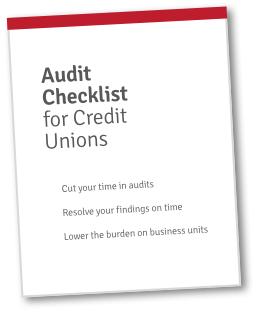These are their stories.
The identities of the participants have been protected.
External Audit Recommendations in the Recession Era
During the recession in the late 2000s, many lenders were handing out bad mortgages left and right. As a result, many lenders saw their investment portfolios drop precipitously in value.
NCUA examiners quickly adapted to the new market. They became more rigid and prescriptive than usual in an effort to keep credit unions and their members safe.
Unfortunately, the examiners’ increased stringency regarding loan risk mitigation hurt many credit unions with sound portfolios. They didn’t trust the numbers anymore. They asked for more loan loss provisions and other financially-taxing changes.
Loans? Sell Them! Sell Them All!
Our Top Secret credit union veteran this week has more than 20 audits under his belt now. But during the peak of the financial crisis, external audits were a whole new beast.
Mr. Top Secret’s investment income was strong at the time. Their loans were making reliable money for the credit union. All signs pointed to the loans having high-quality securities that were unaffected by the subprime mortgage crisis.
NCUA examiners decided that Mr. Top Secret’s mortgage-backed securities were no good. Or rather, that they wouldn’t be good by the end of the year. The examiners suggested in no uncertain terms that they sell their loans.
Wait! Why Did You Sell Your Loans?
The examiners returned the next year. (They keep doing that, don’t they?)
This time, when looking through the credit union’s investment income, they noticed something concerning. Their loan portfolio wasn’t performing up to par.
The examiners asked Mr. Top Secret, “hey! What happened to your investment income? Why did it drop so much?”
Well, that’s what happens when you order a credit union to sell the securities that were actually making money.
Tricks to Avoiding Further External Audit Nightmares
Aside from the recession-era SNAFU, Mr. Top Secret tries to run a tight ship. The hardest part for him is actually the logistics of audit preparation and delivery.
Mr. Top Secret notes, “the biggest nightmare is getting everything ready for the auditors to come in and look at your books, your paperwork, and go through files and explain things.”
He sees audits as a necessary evil. They’re good people who do good work, but it’s a complicated, time-consuming process. In his eyes, “if you can do something to reduce the time that it’s going to take and make it more efficient,” then you’re onto something.

FREE: Audit Checklist for Credit Unions
4 key principles and 9 questions to jumpstart your audit planning. From leading credit unions.Credit Union Compliance Resources
Regardless of your past experience, credit union exams can throw curveballs your way. Some, like the above, may be unavoidable even with demonstrable compliance. Others can be avoided with good planning and great audit tools.
Mr. Top Secret from the story had audit experience and a strong portfolio, but that isn’t always enough. In fact, he’s barely even concerned with another audit nightmare happening—he’s more interested in a way to take some of the headaches out of the audit process.
If you’re like Mr. Top Secret and would like to see what kind of audit tools are available, follow our blog! We do our best to provide resources for credit union external audits and examinations.
Or, you can read our article on 3 common credit union risks and how to address them. Then, you can check out our NCUA Audit Checklist to see if you’re ready for your next external audit.
These other blogs may be of interest to you as well:
5 Strategies to Avoid Risk During Your Credit Union's Next Regulatory Examination






